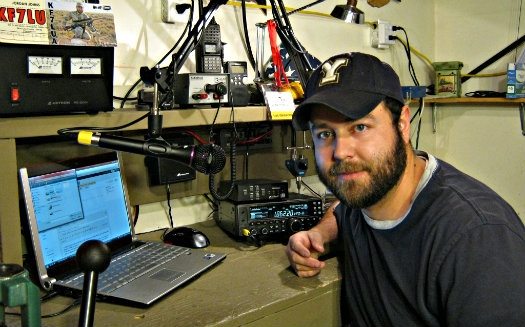What's happening at BCARA
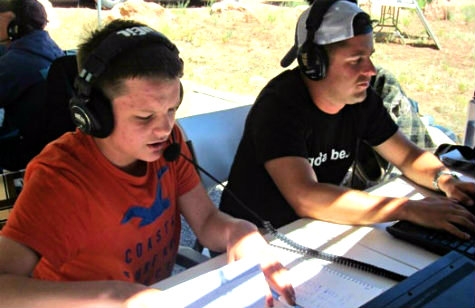
What is Ham Radio? (click here)
What is Ham Radio? Amateur Radio (ham radio) is a popular hobby and service that brings people, electronics and communication together. People use ham radio to talk across town, around the world, or even into space, all without the Internet or cell phones. It's fun, social, educational, and can be a lifeline during times of need. You can set up a ham radio station anywhere! In a field... ...at a club station.... ...or at home. Although Amateur Radio operators get involved for many reasons, they all have in common a basic knowledge of radio technology and operating principles,...
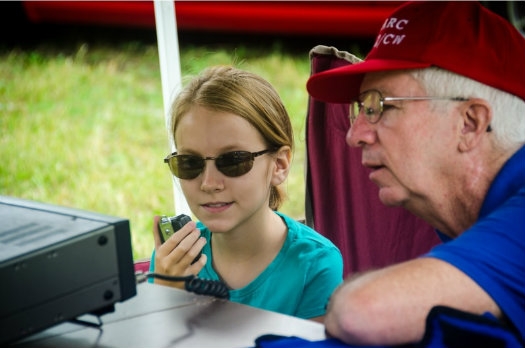
Why should I get licensed? (click here)
Why should I get licensed? Before you can get on the air, you need to be licensed and know the rules to operate legally. US licenses are good for 10 years before renewal and anyone may hold one except a representative of a foreign government. In the US there are three license classes—Technician, General and Extra. Technician License The Technician class license is the entry-level license of choice for most new ham radio operators. To earn the Technician license requires passing one examination totaling 35 questions on radio theory, regulations and operating practices. The license gives access to all Amateur Radio frequencies above...
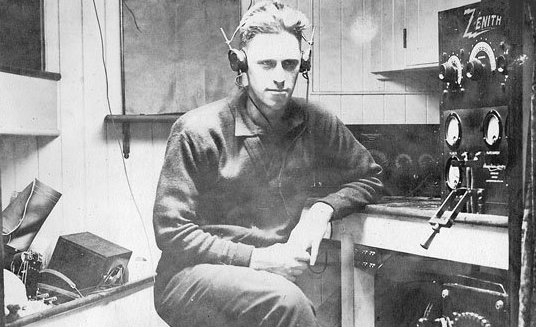
Ham Radio History (click here)
In 1873, James Clerk Maxwell presented his theory of the electromagnetic field. In 1901 Guglielmo Marconi communicated across the Atlantic with a radio device using high power and giant antennas. To curb interference, Congress approved the Radio Act of 1912, which required amateurs to be licensed and restricted to the single wavelength of 200 meters. In 1914 the American Radio Relay League was founded by Hiram Percy Maxim, who found that messages could be sent more reliably over long distances if relay stations were organized. Transatlantic transmitting and receiving tests began in 1921 and by July 1960 the first two-way contact...
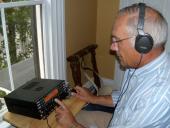
Your First Station (click here)
Your Amateur Radio station may change, but you have to start somewhere, right? Here are some fundamentals that all Amateur Radio stations have in common: Transceiver Power Supply Antenna System The Transceiver Selecting your transceiver will largely depend on how much you want to spend and what you hope to do. If you want to explore long-distance contacts on the HF bands, you’ll need an HF transceiver. If you are interested in chatting with local friends on the VHF or UHF bands, look for a VHF+ FM transceiver. Build Your Own Radio Most hams buy their radios factory assembled,...
-
What is Ham Radio? (click here)
-
Why should I get licensed? (click here)
-
Ham Radio History (click here)
-
Your First Station (click here)
Why should I get licensed? (click here)
Why should I get licensed?
Before you can get on the air, you need to be licensed and know the rules to operate legally. US licenses are good for 10 years before renewal and anyone may hold one except a representative of a foreign government. In the US there are three license classes—Technician, General and Extra.
Technician License

The Technician class license is the entry-level license of choice for most new ham radio operators. To earn the Technician license requires passing one examination totaling 35 questions on radio theory, regulations and operating practices. The license gives access to all Amateur Radio frequencies above 30 megahertz, allowing these licensees the ability to communicate locally and most often within North America. It also allows for some limited privileges on the HF (also called "short wave") bands used for international communications. Learn More
General License
The General class license grants some operating privileges on all Amateur Radio bands and all operating modes. This license opens the door to world-wide communications. Earning the General class license requires passing a 35 question examination. General class licensees must also have passed the Technician written examination. Learn More
Amateur Extra License
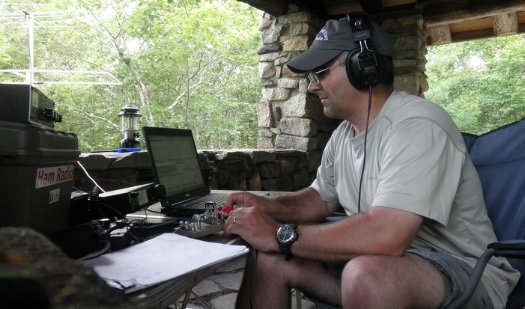
The Amateur Extra class license conveys all available U.S. Amateur Radio operating privileges on all bands and all modes. Earning the license is more difficult; it requires passing a thorough 50 question examination. Extra class licensees must also have passed all previous license class written examinations.Learn More
For more information, submit our online Prospect Package Request form or call: 1-888-277-5289.
BCARA provides testing opportunities to obtain your amateur radio license without a fee!
This content was created by ARRL.ORG The direct link is:
http://www.arrl.org/getting-licensed
Member Login
Main Menu
Who's Online
We have 2 guests and no members online
Meetings
ARRL News
American Radio Relay League | Ham Radio Association and Resources
The American Radio Relay League (ARRL) is the national association for amateur radio, connecting hams around the U.S. with news, information and resources.-
ARRL Headquarters Closing for Christmas Holiday 2025
ARRL The National Association for Amateur Radio® will close our headquarters early at 12 PM Eastern Standard Time (1700 UTC) on Wednesday, December 24, 2025, and will be closed all day on Thursday and Friday, December 25 - 26 for the Christmas holiday. ARRL will also be closed on Thursday, January 1, 2026, for New Year's Day.There will be no W1AW transmissions during the holiday closures. The A...
-
The ARRL Solar Update
Solar activity has been at low levels with only a few C1 flares fromRegion 4307. Slight growth and consolidation were observed in thatregion as it neared the southwestern limb. Slight decay andseparation were observed in Region 4311. The rest of the spottedregions were either stable or in decay. CME analysis will beconducted as imagery becomes available. Solar activity is expectedto be low with...
-
Up to $25,000 at Stake in New ARRL Student Coding Competition
Pre-registration is now open for a Student Coding Competition, a new national challenge sponsored by ARRL The National Association for Amateur Radio®. The project is designed to engage young radio amateurs in shaping the future of amateur radio through software development. Open to ARRL-member amateur radio operators aged 21 and younger, the competition will invite students to design a mobile a...
-
Obsolete Part 97 Rules to be Deleted February 10, 2026
The Federal Communications Commission (FCC) in October 2025 adopted a Report and Order to delete almost 400 obsolete rules pertaining to its wireless services. As previously reported by ARRL, among the deletions were four in Part 97 that govern the Amateur Radio Service.ARRL reports that the notice of the Report and Order has now been published in the Federal Register. Unless an objection is ra...
-
The ARRL Solar Update
Solar activity reached high levels this past week when Region 4299produced an M1.1 (R1/Minor) flare on December 6. Shortly after, theregion produced an M8.1/2b (R3/Strong) flare, also on December 6.Associated with the M8.1 flare was a 1,100 SFU Tenflare, a 1,143km/s Type II sweep and a Type IV sweep. (A "sweep" is a solar radioburst that sweeps through the RF spectrum as the energy movesoutward...
-
Help Someone Get Their FIRST Ham Radio License by the End of 2025

